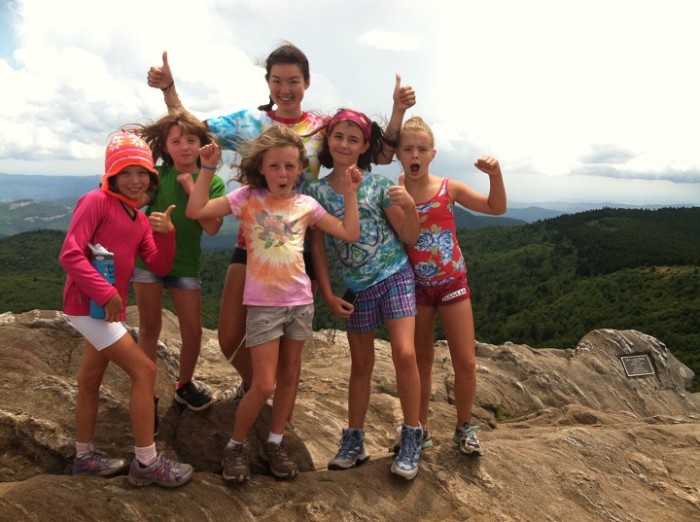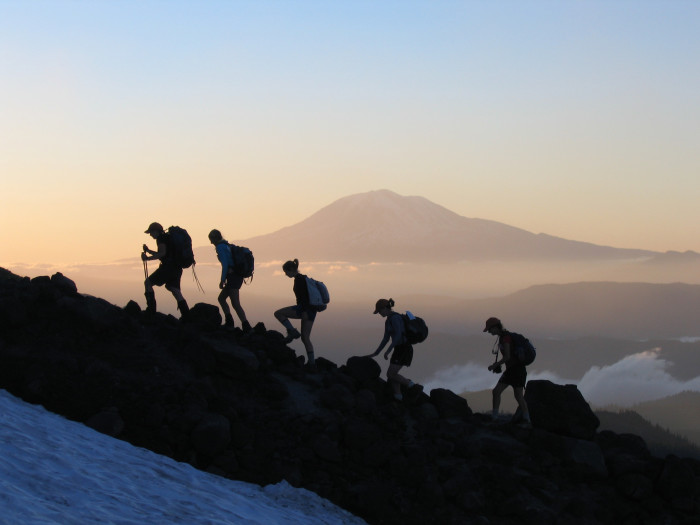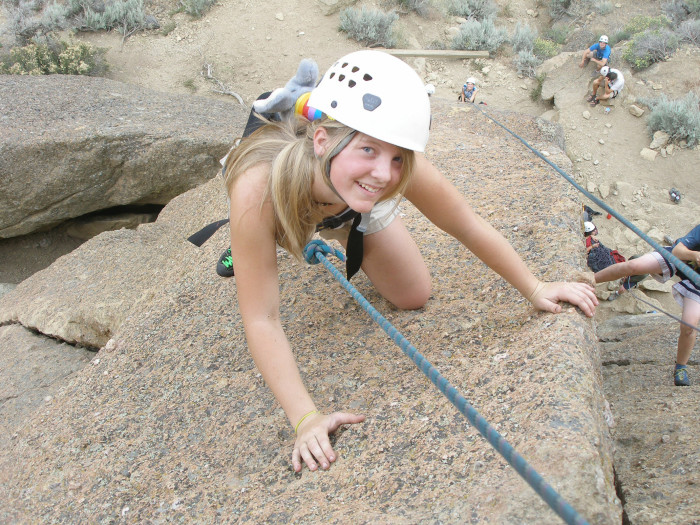The Right Outdoor Camp Experience Can Build a New Framework for How Kids Choose to Interact With Their Technology

*Guest post by John Dockendorf and Steve Baskin/Expert Outdoor Adventure Camp Directors
The recent shifts in society caused by new technologies have arrived without a parenting manual. We are not among the legions that see technology as an evil to be feared. We do believe that we need to think through the ramifications of how technological changes affect our children. We all know the facts: A child today is five times more likely to play a video game than to ride a bike. The average 13 year old sends 3700 texts a month. In 2010, that same teenager spent 7.5 hours a day (53 hours / week) with some type of digital media. (Pew) By age 21, that same teenager, if a boy, will have played 10,000 hours of video games (compared with 4800 hours needed to obtain his Bachelor’s degree). In 2013 the numbers will be even higher!
No one should deny that digital media is a lot of fun! No wonder, research shows that successful video game play causes the brain to release Dopamine, which gives video games an unfair advantage in the pleasure centers of the brain vs. other activities. Despite this, kids are still doing the same amount of homework (albeit frequently multi-tasking while studying) and still playing plenty of organized sports on mowed playing fields. It’s the time spent outdoors in nature often in the company of friends that is getting displaced. And this is the very activity research shows, kids need to boost their creativity, collaboration and communication skills. (Louv – 2012)
We believe that for the past 10,000 years, humans have been wired a certain way. Just as our pancreas is meant to process fewer sugars than we currently eat, our bodies are meant to live differently than we currently do. Humans are meant to be in the sun. We are meant to communicate face-to-face. Real human interaction (including hugs, high fives and fist bumps) enables us to connect in a way that smart phones, texts Instagram or Facebook cannot. Parts of our brain only feel truly connected when there is some form of physical contact. We are also meant to engage in physical activity outdoors.
The cognitive and social benefits of time spent in nature are now well documented. (Louv 2012) The physical benefits are obvious; others are more subtle. Research shows that children have better brain development, and are both mentally and physically healthier if they play outside frequently. Nature experiences significantly reduce children’s stress, while enhancing cognitive flexibility, problem-solving ability, self-esteem, and self-discipline. A 2012 British study on the restorative effects of nature demonstrates how time spent in nature can improve both executive function and creativity skills. Effects of Attention Deficit Disorder are reduced when children have regular access to the out-of-doors.
As directors of nature and adventure based summer camps, we get to watch the benefits outdoor experiences bring to digital-age children every day. Camp unplugs us from the electronic umbilical cord. All communication is face to face and there are numerous opportunities to develop creativity and improve social competence and cohesion.

Another benefit is a more nuanced one, when campers actually unplug from electronics, they learn how that feels. Unlike their parents, many kids have never experienced life before Google, video games or a smart phone. When they experience firsthand the benefits of cultivating the interpersonal skills that their peers may be neglecting, they develop a new framework that helps them keep their technology in perspective. They are empowered to make decisions about how they think technology should fit into their own lives and that it need not be all consuming.
At great camps, kids will voluntarily give up their electronics and thank their parents for it! Camp is a reward, and providing a reward as an alternative to technology is always a better strategy than punishing a child by taking electronics away.
In an environment free of technology, campers also have the opportunity to participate in what psychologists call “vital engagement” (Nakamura & Csikszentmihali, 2003). Anyone who has watched campers scale a climbing tower, raft a river, bike a trail or make s’mores around a campfire have witnessed it. What makes this kind of activity different from texting or tweeting or gaming is that it happens in the company of others, it is relational and supportive and not isolated. While having fun outdoors, kids are learning and practicing the very skills that the Partnership for 21st Century Skills believes they will need to succeed in the new world. These skills are: Oral communication, collaboration, creativity, critical thinking and leadership. We are at a loss to name an experience that teaches kids these skills better or more intentionally than does the right camp. A good camp provides opportunities to interact with others, work in teams, develop independence, and foster resilience. At camp, kids get to practice interpersonal interactions 16 hours a day and they get good at it. They learn to refine body language, humor, vocal intonation, eye contact, posture, etc. This refinement happens naturally and in a fun and exciting environment. And perhaps the best thing is that they make new friends in the process.
Protecting our environment sustains life on our planet and depends on citizens with an environmental ethic. Almost all environmentalists remember a transformative experience in nature as a kid. If youth are so immersed in technology that they no longer get these experiences, then where will the next john Muir, Aldo Leopold or Rachel Carson come from?
The exposure to nature that camp can provide helps kids develop a sense of wonder which is important for maintaining a life-long love of learning. Time in nature also gives kids a sense of their place in the world. When a child dominates a video game, they “own the world”, but it’s a small world. When a child sits on top of a mountain top and looks at a spectacular 40-mile view, they realize there is a lot more to their world and they gain perspective. When friends ease one another’s struggles to reach the summit, through their conversation and support, a child realizes that connections are important. Perhaps they might even realize that “owning” the world isn’t as rewarding as sharing that world with friends.

John Dockendorf is the Executive Director of Adventure Treks, an outdoor adventure travel camp for teenagers www.AdventureTreks.com and Camp Pinnacle, a North Carolina summer camp www.camppinnacle.com. Dockendorf has a master’s degree in Management from the Cornell School of Hotel Administration and serves on several school and community boards.
Steve Baskin is the Executive Director of Camp Pinnacle in North Carolina and Camp Champions in Texas. Baskin has a master’s degree from the Harvard Business School and blogs on the topic of youth development for Psychology Today. Baskin is a national board member for the American Camping Association















Nice post Michelle! Love the idea here! Such a beautiful experience for kids and a great exposure for them to learn more with their skills. Excellent share!!!